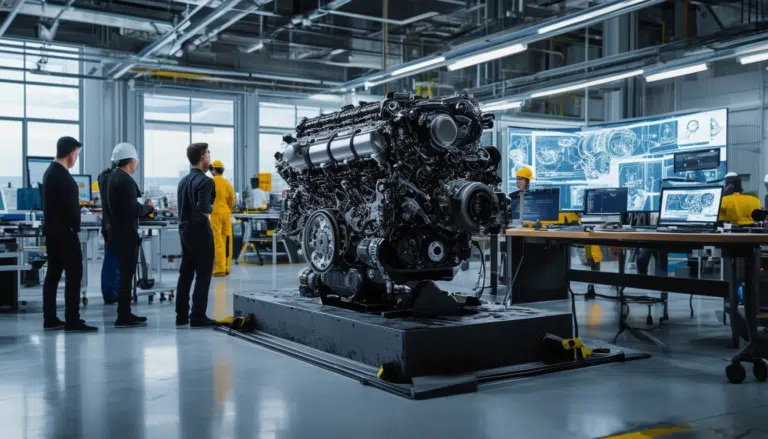Reduction of fuel expenditure: a business imperative

In a world where sustainability and energy efficiency are more relevant than ever, the reduction of fuel expenses has become a business imperative. Organizations, regardless of their size or sector, must adopt strategies that not only minimize their operating costs but also contribute to a more sustainable future. Implementing measures to optimize the use of energy resources positively affects the company’s profitability and positions the organization as a responsible player in the fight against climate change and pollution.
In the current context, the reduction of fuel expenses has become a crucial objective for companies seeking to optimize their operating costs and promote sustainability. Implementing efficient practices not only represents economic savings but also demonstrates a commitment to the environment.
The importance of efficient driving
One of the pillars in the reduction of fuel expenses is the promotion of efficient driving. Changing drivers’ habits can result in significant savings. Techniques such as gradually accelerating, maintaining a constant speed, and avoiding harsh braking are fundamental to maximizing fuel efficiency. Moreover, periodic training can sensitize drivers to the importance of these methods.
Proper vehicle maintenance
Regular maintenance of vehicles is essential to ensure their proper functioning and efficiency in fuel use. Periodically checking the engine, filters, and wheel alignment can prevent inefficient wear that leads to higher consumption. In fact, poor maintenance can result in increased fuel expenses that are easily avoidable. For more information on how good maintenance can help you, refer to this article on fuel system maintenance.
Optimization of transportation routes
Route planning plays a crucial role in the efficiency of fuel used by transportation fleets. Minimizing the total distance traveled and avoiding congested areas can be key to cost reduction. The use of advanced technologies, such as navigation systems, allows companies to plot the most efficient routes, saving time and money.
Control and monitoring of consumption
It is vital to establish a real-time fuel consumption control. By using management software and telemetry, companies can effectively monitor fuel use, detecting anomalies and adjusting operations to improve efficiency. This approach not only helps identify problems but also allows the company to be more proactive in its savings strategies.
Ongoing training and awareness
Education and awareness about fuel savings is an essential element in the organizational culture of any company. Training programs that address good driving practices and the importance of sustainability help integrate these values into employees’ daily lives. Fostering a savings mentality can motivate staff to actively contribute to reducing energy expenses.
Collaboration and synergies between companies
Cooperation between various companies can enhance the effectiveness of different savings strategies. Sharing experiences and best practices can lead to innovative solutions that benefit all parties involved. Creating strategic alliances for fuel purchasing or sharing fleets could result in a significant impact on reducing operating costs.
Leadership in sustainability
Finally, being a pioneer in sustainability and the reduction of fuel expenses not only offers economic benefits but also improves corporate image. Promoting sustainable practices can attract a more environmentally conscious audience and generate loyalty among consumers. Companies that show effective commitment to sustainability are better positioned to face future challenges.
Today, the reduction of fuel expenses has become a highly relevant business imperative. Companies not only face the challenge of containing their operating costs but also must take an active role in environmental sustainability. By adopting practices that reduce fuel consumption, organizations achieve significant savings while also contributing to the care of the planet.
One of the key approaches to facilitate this cost reduction is to implement strategies for proper maintenance of vehicles. This includes periodic checks to ensure that all components are functioning efficiently. A well-maintained vehicle consumes less fuel, which translates into lower expenses for the company.
Similarly, promoting efficient driving is crucial. Training drivers in techniques that optimize fuel use can lead to a noticeable variation in the vehicle’s economy. Additionally, the use of advanced technologies like navigation systems that suggest shorter and less congested routes can minimize the time vehicles spend on the road, thereby contributing to the reduction of fuel consumption.
Finally, integrating initiatives such as using public transportation or forming strategic alliances with other companies to share resources can be an effective way to reduce fuel expenses. This will not only translate into financial savings but will also position the company as a leader in sustainable practices within its sector. Ultimately, the reduction of fuel expenses is a responsibility that every company must assume to ensure a prosperous and sustainable future.




